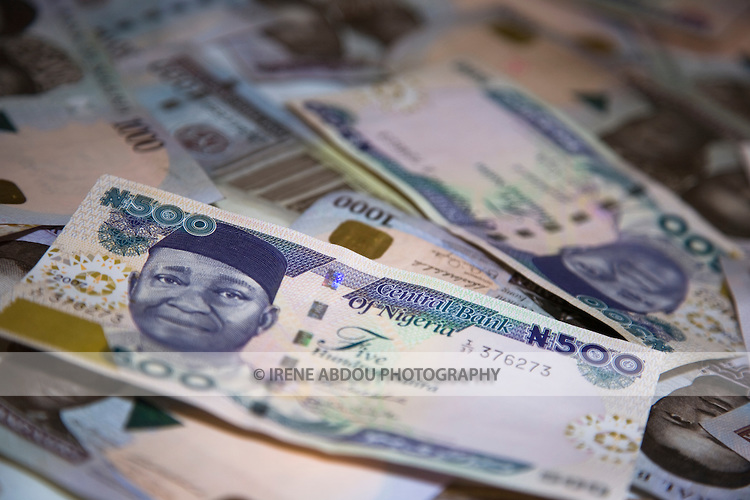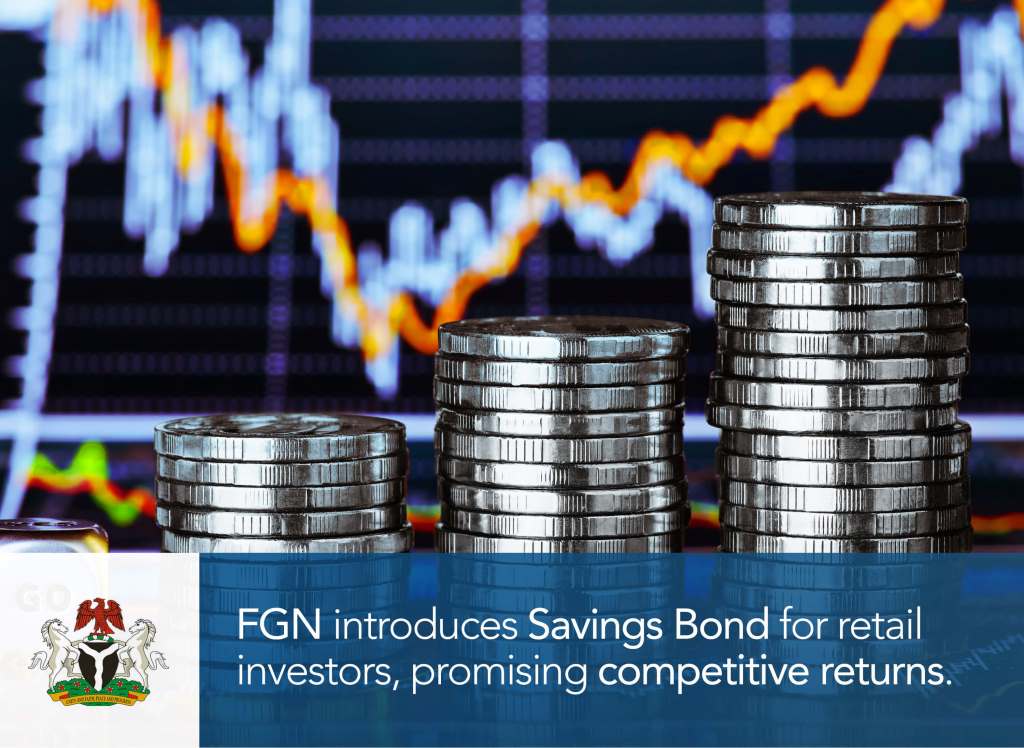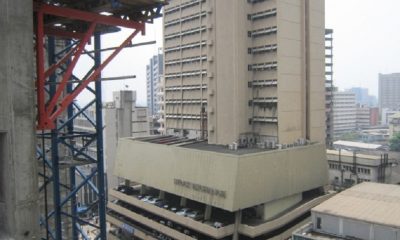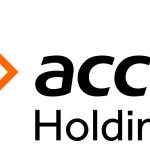Economy
Market Anticipate N309.1b Maturing Bills as Yields Expected to Drop

By Dipo Olowookere
Players in the treasury bills market in Nigeria will look forward to N309.06 billion worth of the government instrument maturing this week via the Open Market Operations (OMO).
During the week, average yields of T-bills are likely to contract as demand rebounds on the back of expected improvement in system liquidity.
Also, the money market rates are expected to remain in the single digit band, barring the resumption of aggressive OMO mop ups by the Central Bank of Nigeria (CBN).
Last week, the Open Buy Back (OBB) and Overnight (OVN), opened in single digit at 4.7 percent and 5.5 percent respectively, indicating an 84bps and 100bps increase from the previous Friday’s close.
This week, there is likely going to be a largely positive performance in the secondary T-bills market as investors with unsuccessful bids at the Primary Market Auction (PMA) last week consider opportunities in the secondary market.
Last week, the market kicked off the year on a bearish note, as average yield expanded by 24 basis points to 13.61 percent, against 13.37 percent the previous week.
Yield expanded at the short (+70 bps) end of the curve, declined at the long (-15 bps) end, and was flat at the mid end.
During the week, at the first NTB auction of the year, the offered bills were 2.4x oversubscribed, with N11.77 billion, N33.93 billion, and N115.85 billion of the 91-day, 182-day, and 364-day bills sold at lower stop rates of 12.55 percent (previously 12.95 percent), 13.93 percent (previously 15 percent), and 14.3 percent (previously 15.57 percent), respectively.
Economy
Dangote Packaging Explores Polypropylene Bag Exports to African Markets
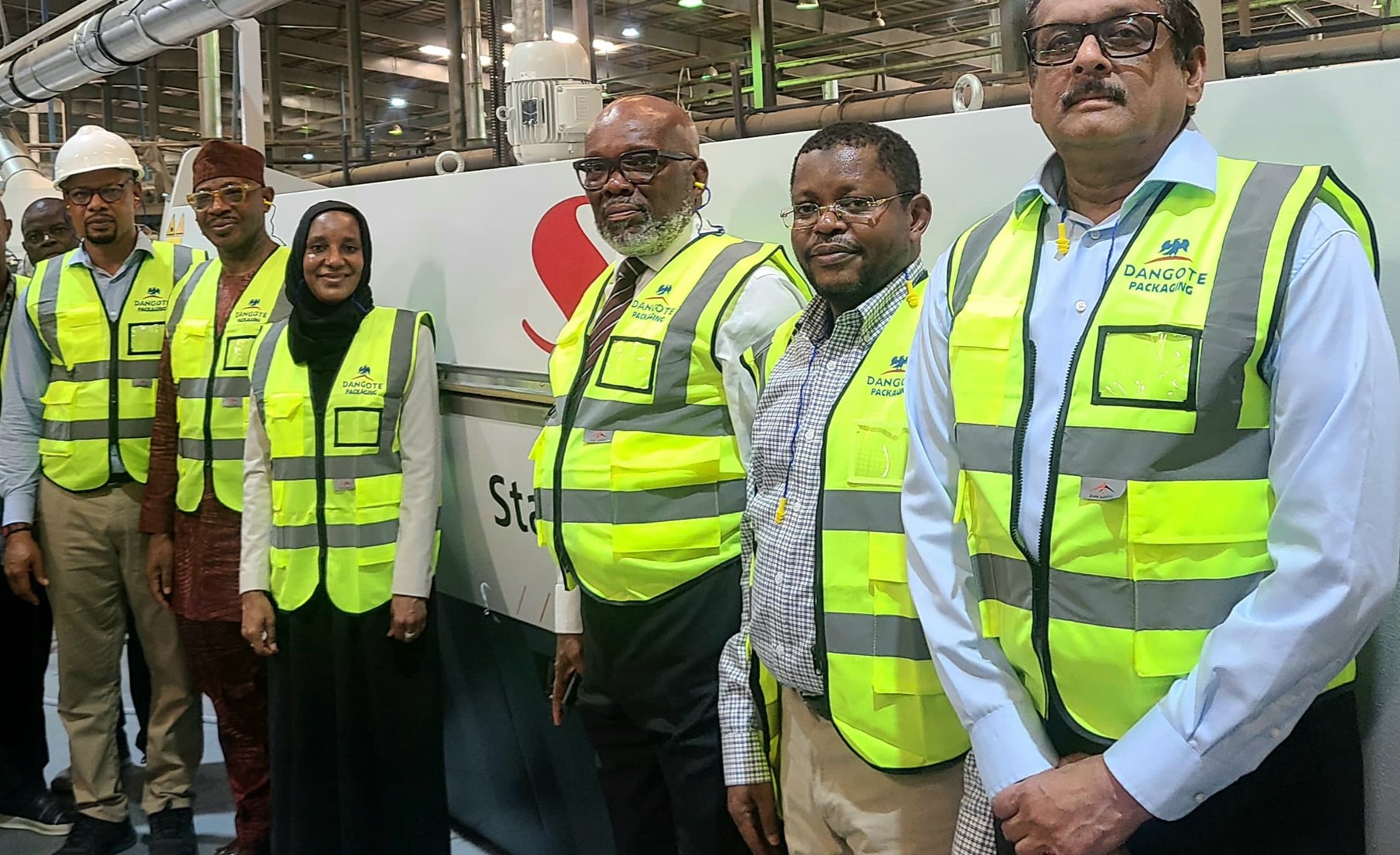
By Modupe Gbadeyanka
Following a production capacity boost facilitated by new machinery being commissioned in the two manufacturing plants, Dangote Packaging Limited (DPL) is planning to expand into the African export market.
With its production now up to 52 million polypropylene bags per month from 36 million, the management is exploring pushing the excess to other African markets to boost the Nigerian economy, particularly for foreign exchange (FX) earnings.
“With the current increase in production capacity, DPL is ready to explore markets across West, Central, and Southern Africa.
“Once domestic demand is met, it is only logical to channel our surplus to new territories. To this end, we have engaged an export team to lead the charge,” the chairman of the company’s board, Mr Robert Ade-Odiachi, said during a strategic board meeting held last Wednesday.
According to him, the entry into export markets will be backed by world-class standards, also hinting at the possibility of offering trade concessions to fast-track market penetration in target export regions.
“We are equipped with state-of-the-art machinery, skilled manpower, and robust systems. Our product quality is unmatched, and our pricing remains competitive,” he added.
DPL’s expansion is part of a wider strategic alignment with the growing demands of the Dangote Group’s industrial portfolio. The increase in production is expected to support the Group’s internal supply chain while also positioning DPL as a regional packaging powerhouse.
“With our refinery and petrochemical plants now supplying key raw materials, we have achieved self-sufficiency, further reinforcing our long-term growth prospects,” Mr Ade-Odiachi said.
Also speaking at the meeting, Dangote Group Treasurer and DPL Board Member, Mr Mustapha Matawalle, stressed the economic benefits of the expansion.
“This is not just about market dominance and revenue generation,” he said. “It’s also about creating jobs and boosting Nigeria’s foreign exchange earnings through export activity,” he stated, lauding DPL’s commitment to Health, Safety, Security, and Environmental (HSSE) standards, noting that operations remain fully compliant with regulatory expectations.
The company’s new push follows the commissioning of advanced machinery in April, an event where DPL Managing Director, Mr Sai Prakash, described the equipment as cutting-edge and pivotal to enhanced productivity and product quality.
“With our rapidly expanding capabilities, stepping into the African market is a natural and timely progression,” Mr Sai Prakash said.
Economy
Retail vs. Institutional Forex Trading: What Nigerian Traders Need to Know

Most traders in Nigeria are retail traders. They use personal money and trade on online platforms. Understanding how retail trading compares to institutional trading helps new traders make better choices. Knowing the differences also helps traders set realistic goals and avoid common traps. Retail traders do not have the same power, tools, or market influence as institutions, but they can still grow their accounts with smart choices and consistent habits. This article will explain the key differences and how Nigerian retail traders can succeed by focusing on skill, discipline, and risk control.
What Is Retail Forex Trading?
Retail traders trade with their own money, usually in small amounts. They use mobile apps or desktop platforms like MetaTrader to buy and sell financial instruments. Retail trading is open to anyone with internet access and a small deposit, which makes it popular in Nigeria. However, retail traders usually have limited access to financial data, trading tools, and fast execution speeds.
What Is Institutional Trading?
Institutional trading is carried out by banks, hedge funds, and large financial firms. These institutions trade large volumes of money and have direct access to liquidity providers. They use advanced tools, private data feeds, and faster order execution. Their trading decisions are often based on deep market analysis and are supported by teams of professionals.
Key Differences Between Retail and Institutional Trading
- Capital: Institutions manage millions or even billions in assets. In contrast, retail traders often begin with as little as $100 or $1,000. The amount of capital affects how trades are placed and how much risk is taken.
- Tools and Access: Institutional traders use advanced trading software, direct market access, and exclusive data sources. Retail traders work with public platforms and slower data, which can limit their reaction time.
- Market Impact: Institutional traders place large orders that can influence price movement. Retail traders do not affect market direction due to the smaller size of their trades.
- Costs: Institutions pay lower fees and spreads because they trade in bulk. Retail traders usually face higher costs per trade, including wider spreads and commissions.
Can Retail FX Traders Succeed?
Yes, retail traders can succeed if they follow a clear plan and manage risk properly. Many individuals in Nigeria have turned small accounts into meaningful profits by being consistent and disciplined. They focus on learning, testing strategies, and avoiding emotional decisions. You can read about successful forex traders from Nigeria.
Tips for Retail Traders in Nigeria
Retail traders in Nigeria should focus on using a simple strategy that they understand clearly. They should risk only a small amount of their capital on each trade to avoid large losses. It is important to trade without emotion and to treat each trade as a learning opportunity to improve future decisions. Keeping a trading journal can also help track progress and find patterns in both success and failure.
Economy
SEC to Discuss Unregistered Investment Schemes at First CMC Meeting of 2025
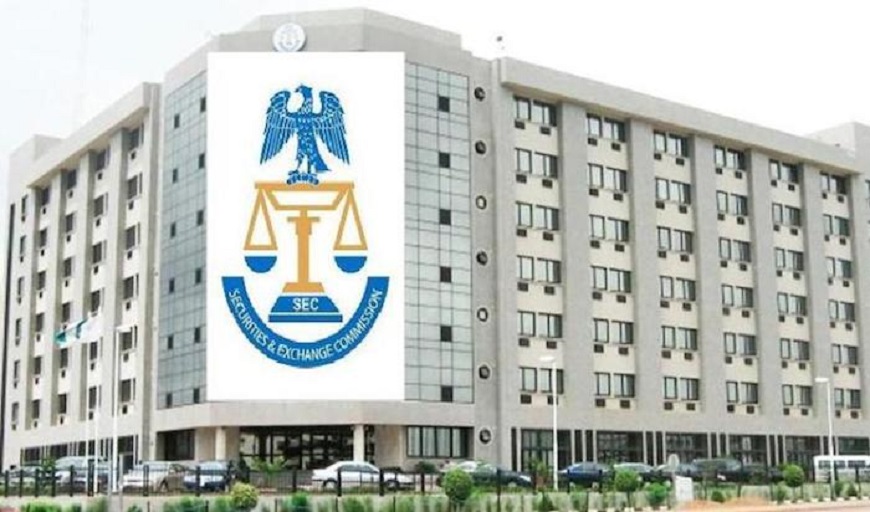
By Aduragbemi Omiyale
The first Capital Market Committee (CMC) meeting of 2025 in Nigeria will take place on Monday, May 19, the Securities and Exchange Commission (SEC) has confirmed.
One of the major issues to be discussed at the gathering is the activities of unregistered investment schemes in the country.
This is coming a few weeks after many Nigerians fell victims of a popular Ponzi scheme, Crypto Bridge Exchange (CBEX).
It was speculated that the organisation went away with funds belonging to Nigerian investors worth about $1 billion. Victims could not withdraw their money from their wallets with the platform.
At the CMC meeting taking place less than two weeks’ time, the capital market regulator will explore ways to better inform Nigerians on available authorised capital market products.
“The meeting will focus on critical issues affecting the market and ensure that those concerns are thoroughly addressed.
“Participants will also deliberate on the activities of unregistered investment schemes and explore ways to better inform Nigerians on available capital market products,” parts of the notice from SEC read.
In addition, the committee will deliberate on the implementation of the Investments and Securities Act 2025, recently signed by President Bola Tinubu.
Further, participants will brainstorm on strategies to drive capital market growth in line with Mr Tinubu’s Renewed Hope Agenda.
Also, the meeting will review the market’s current regulatory landscape and develop strategies to attract investments, improve market efficiency, and protect investors.
The team will, equally, examine reports from technical committees, market infrastructures, and industry observers to guide discussions on emerging market trends and regulatory reforms.
Business Post reports that expected at the CMC meeting are capital market operators, trade groups, investment advisers, fund and portfolio managers, and custodians.
-

 Feature/OPED5 years ago
Feature/OPED5 years agoDavos was Different this year
-
Travel/Tourism9 years ago
Lagos Seals Western Lodge Hotel In Ikorodu
-

 Showbiz2 years ago
Showbiz2 years agoEstranged Lover Releases Videos of Empress Njamah Bathing
-

 Banking7 years ago
Banking7 years agoSort Codes of GTBank Branches in Nigeria
-

 Economy2 years ago
Economy2 years agoSubsidy Removal: CNG at N130 Per Litre Cheaper Than Petrol—IPMAN
-

 Banking2 years ago
Banking2 years agoFirst Bank Announces Planned Downtime
-

 Sports2 years ago
Sports2 years agoHighest Paid Nigerian Footballer – How Much Do Nigerian Footballers Earn
-

 Technology4 years ago
Technology4 years agoHow To Link Your MTN, Airtel, Glo, 9mobile Lines to NIN



